
Have you ever heard someone use a nautical phrase and wondered what it meant? Nautical phrases are common in everyday language, and many of these phrases originated from seafaring traditions. Here are some nautical phrases in common use:
"All hands on deck"
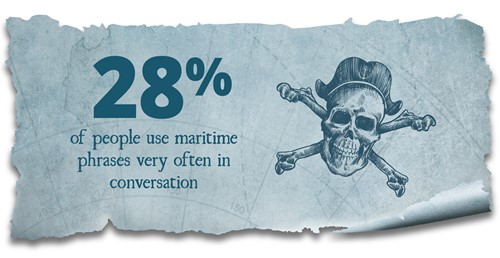
This phrase is used to call every crew member to come to the deck of the ship. It is often used in non-nautical situations to mean that everyone needs to help out.
"Batten down the hatches"

This phrase means to secure everything on the ship because rough weather is coming. In non-nautical situations, it means to prepare for a difficult situation.
"By and large"

This phrase means generally or overall. It comes from the nautical terms "by" and "large" which refer to sailing into or against the wind.
"Clean slate"

This phrase means to start anew without any past mistakes or problems. It comes from the practice of cleaning the slate on a ship where the crew would write notes or log information.
"Cut and run"

This phrase means to leave a situation quickly and without hesitation. It comes from the practice of cutting the anchor rope and running away from danger.
"Hard and fast"
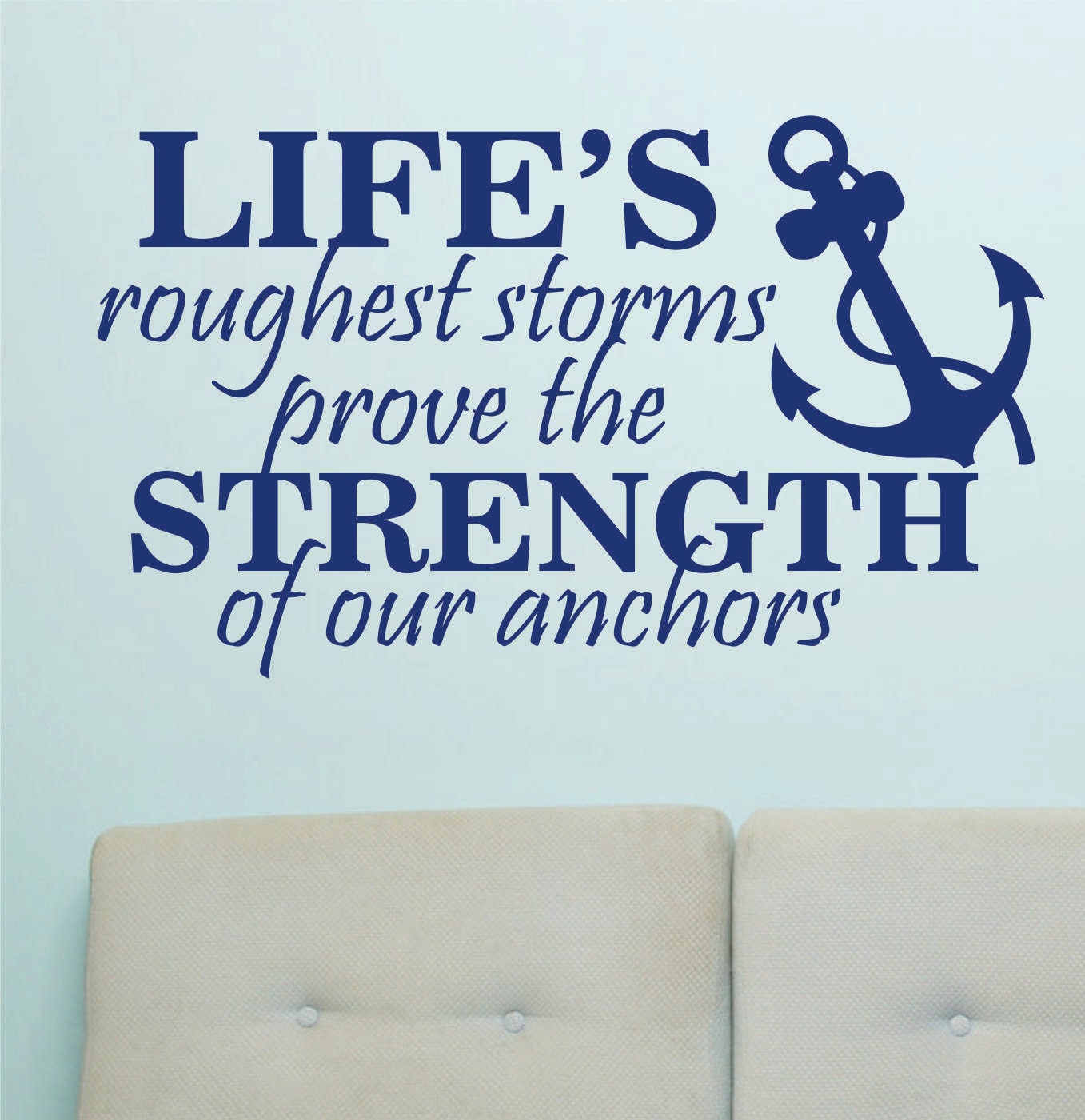
This phrase means inflexible or rigid. It comes from the nautical terms "hard" which means to turn the ship quickly and "fast" which means to secure the ship.
"High and dry"

This phrase means stranded or left without help. It comes from the practice of grounding a ship on the shore to make repairs.
"In the offing"

This phrase means coming soon or about to happen. It comes from the nautical term "offing" which refers to the distant part of the sea visible from the shore.
"Loose cannon"
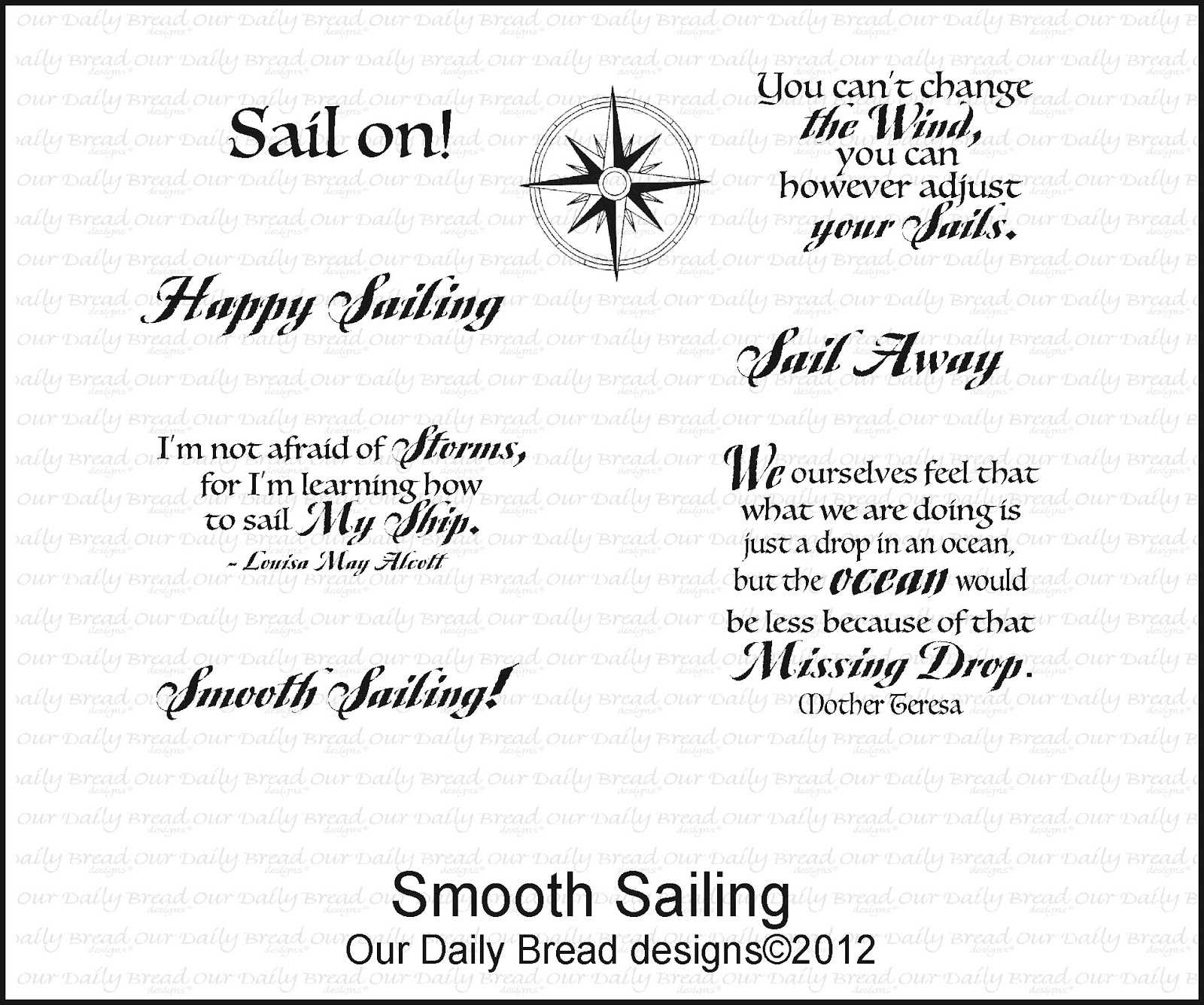
This phrase means someone who is unpredictable and could cause harm. It comes from the practice of securing cannons on a ship to prevent them from moving or firing accidentally.
"Mind your P's and Q's"

This phrase means to be well-behaved and polite. It comes from the nautical terms "P" and "Q" which were used to mark the amount of rum given to sailors.
"On the fritz"
This phrase means something is not working properly. Its origin is uncertain, but some say it comes from the German word "fritz" which means a fit or seizure.
"Pipe down"
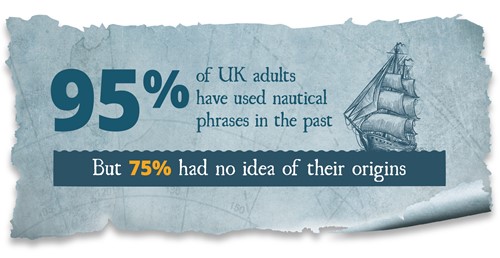
This phrase means to be quiet. It comes from the practice of using a whistle or pipe to signal the end of the day or mealtime on a ship.
"Red letter day"
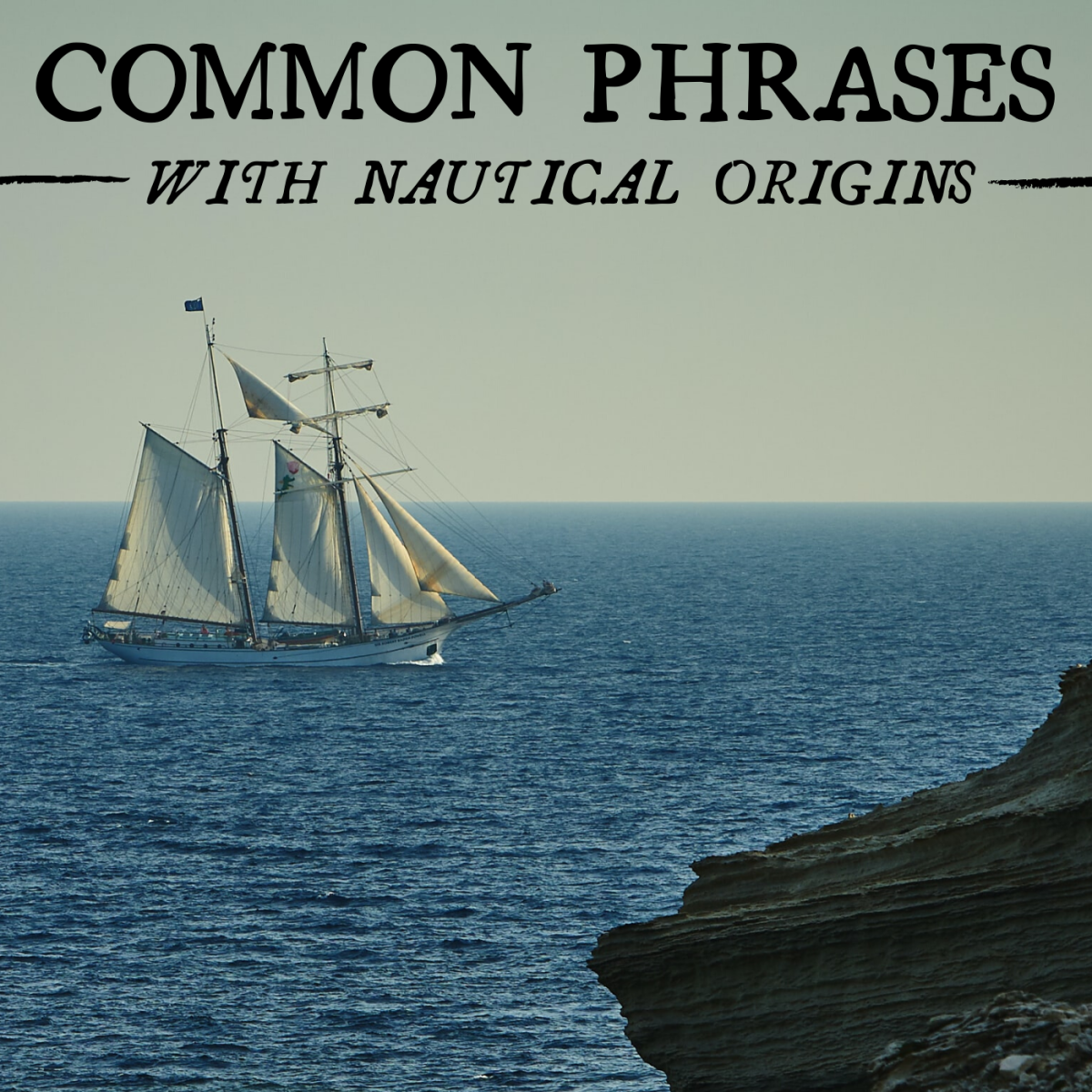
This phrase means a special or important day. It comes from the practice of marking holy days or saints' days in red on a calendar.
"Show the ropes"

This phrase means to teach someone how to do a job or task. It comes from the practice of showing new sailors how to handle and tie knots in ropes.
"Taken aback"
This phrase means to be surprised or shocked. It comes from the nautical term "aback" which refers to the wind suddenly changing direction and hitting the ship from the opposite side.
"Three sheets to the wind"
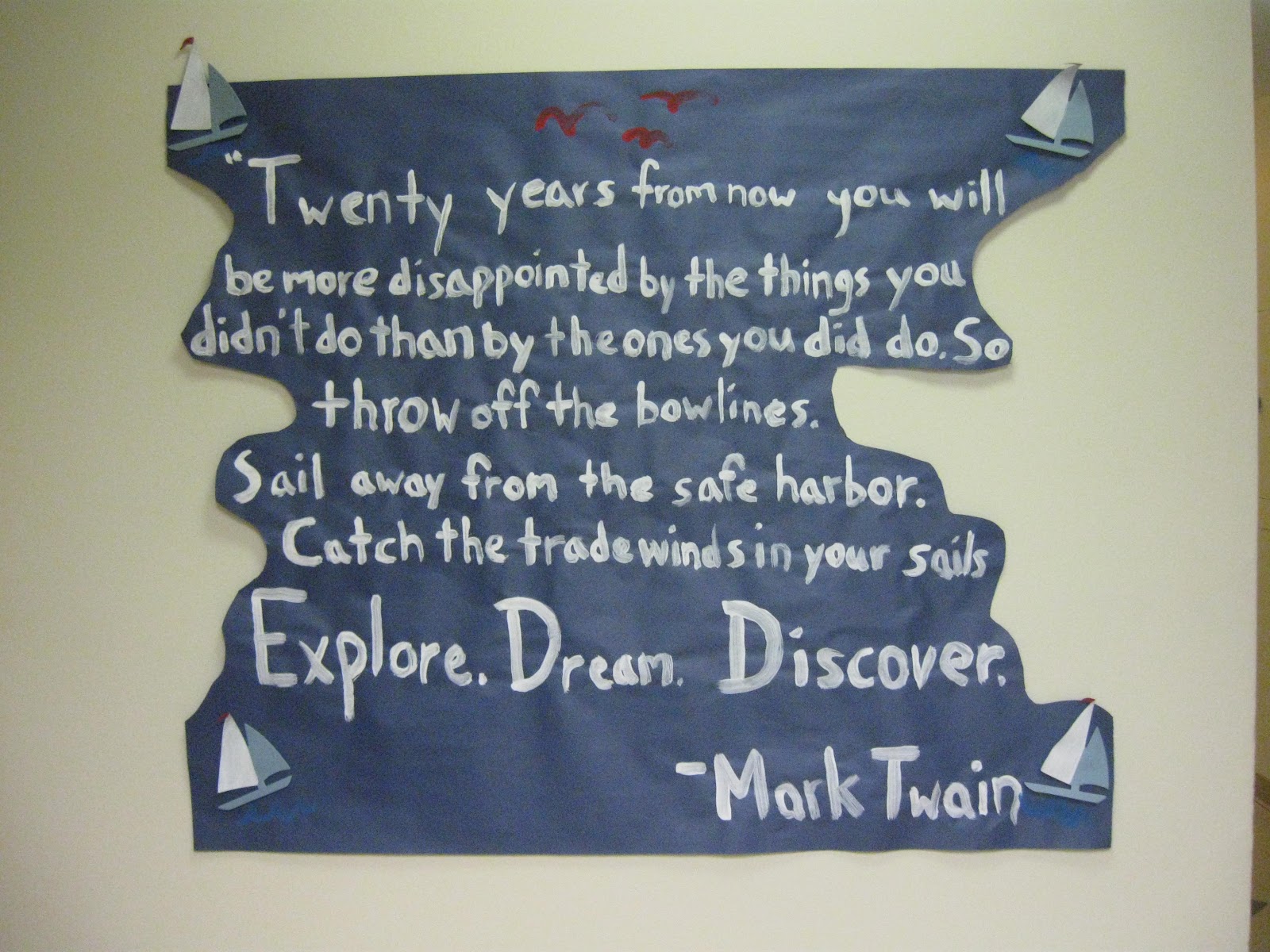
This phrase means to be drunk. It comes from the nautical term "sheet" which refers to the ropes that control the sails. If three sheets are loose, the sails flap in the wind and the ship becomes unsteady.
"Under the weather"

This phrase means to feel ill or sick. It comes from the practice of sailors being confined below deck during bad weather.
"Walk the plank"

This phrase means to be forced to leave or face punishment. It comes from the practice of pirates making people walk off the plank into the water as punishment.
"Wet behind the ears"
This phrase means inexperienced or naive. It comes from the nautical term "ear" which refers to a wooden beam used to support a ship's structure. A new beam would be wet behind the ears.
Nautical phrases are an interesting part of our language and culture. Understanding their origins can give us a better appreciation for their meaning and use.